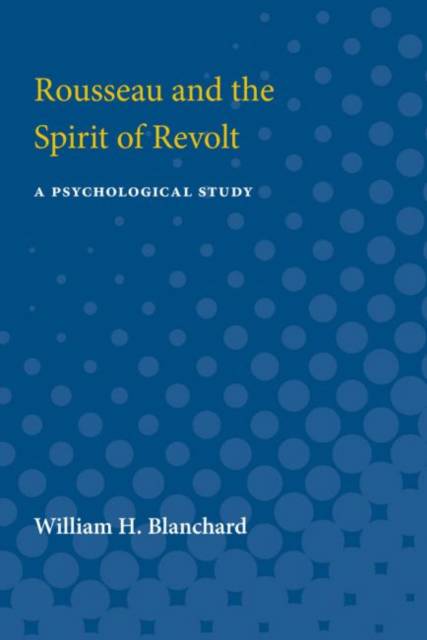
- Retrait gratuit dans votre magasin Club
- 7.000.000 titres dans notre catalogue
- Payer en toute sécurité
- Toujours un magasin près de chez vous
- Retrait gratuit dans votre magasin Club
- 7.000.0000 titres dans notre catalogue
- Payer en toute sécurité
- Toujours un magasin près de chez vous
45,45 €
+ 90 points
Description
Jean-Jacques Rousseau was one of the most influential writers of the eighteenth century, and one of the most controversial. His writings are full of the paradoxes of his personality--his quest for natural truth and his own self-deceptions, his democratic and his despotic tendencies, his imperiousness and his submissiveness, his love of society and his love of solitude.In this study William H. Blanchard, a practicing psychologist, examines the interplay between Rousseau's complex personality and his political writings. Blanchard presents the biographical facts of Rousseau's life and, with the help of Rousseau's Confessions, interprets them according to modern psychology. Blanchard believes that almost all of Rousseau's works have political implications, and he considers such diverse writings as the Letter to d'Alembert on the Theatre, The Social Contract, Emile, and Rousseau's correspondence in the light of his interpretations.One of the major paradoxes of Rousseau's work is that it has been widely used as ideological support by both democratic and despotic forces. The name of Rousseau was invoked throughout the French Revolution by both the early democrats and the later terrorists. Blanchard explores the similarity between the rebel and the tyrant in Rousseau, discusses Rousseau's "urge to suffer for truth," and comments incisively on the dangers of these tendencies, which he finds present in modern society.The author has made excellent use of original documents and sources in his study of Rousseau, and he takes the opportunity to correct various misinterpretations of Rousseau's relations with his contemporaries, particularly David Hume.
Spécifications
Parties prenantes
- Auteur(s) :
- Editeur:
Contenu
- Nombre de pages :
- 316
- Langue:
- Anglais
Caractéristiques
- EAN:
- 9780472750290
- Date de parution :
- 01-01-67
- Format:
- Livre broché
- Format numérique:
- Trade paperback (VS)
- Dimensions :
- 152 mm x 229 mm
- Poids :
- 467 g

Les avis
Nous publions uniquement les avis qui respectent les conditions requises. Consultez nos conditions pour les avis.






